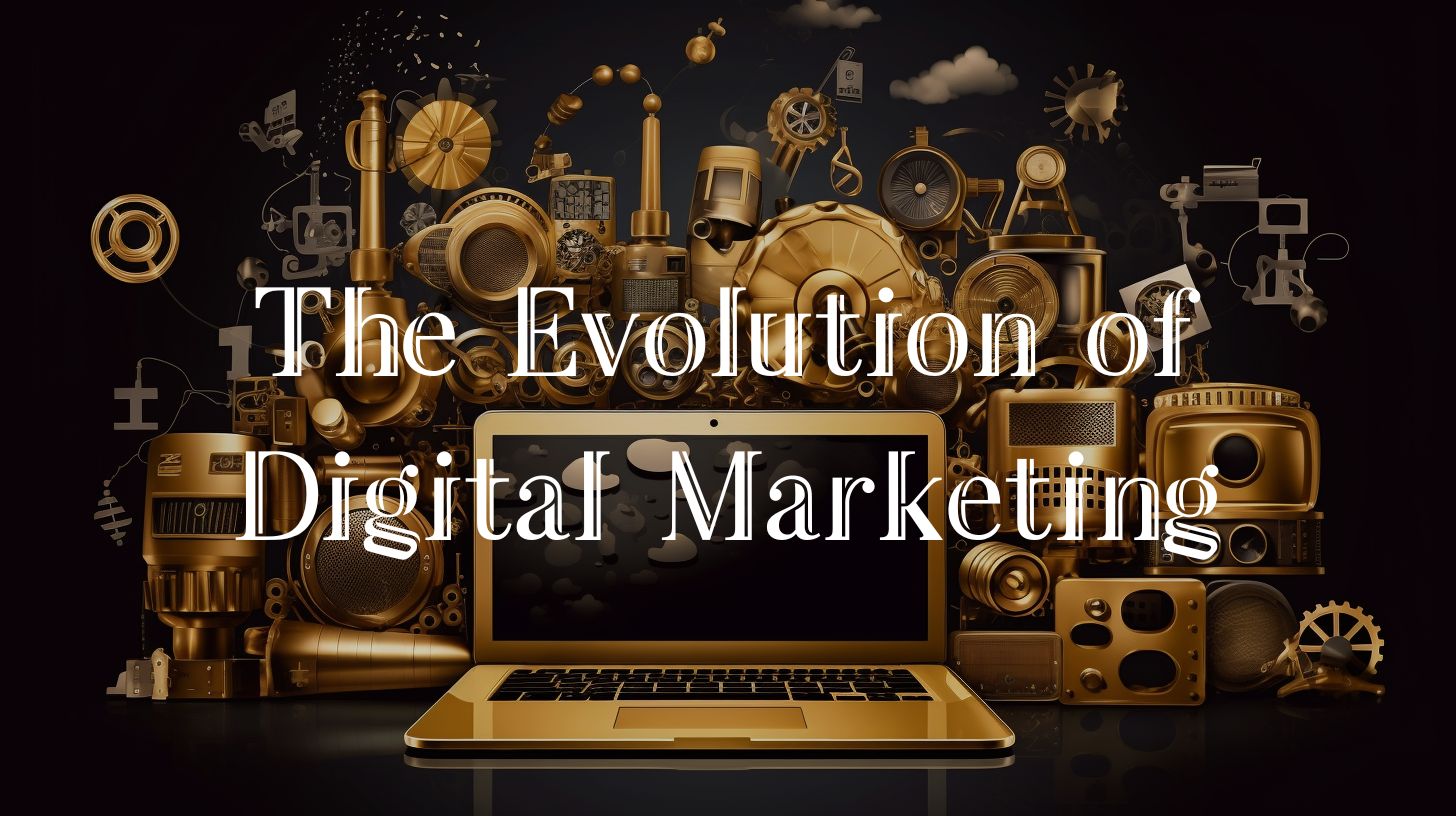Digital marketing has witnessed a remarkable evolution over the years, transforming the way businesses connect with their target audience and promote their products or services. From its humble beginnings to the present digital landscape, and the future prospects that lie ahead, this blog explores the past, present, and future of digital marketing.
The Past
Early Beginnings The roots of digital marketing can be traced back to the 1990s when the internet started to gain popularity. Early forms of digital marketing included basic websites, email marketing, and online banner ads. Search engines emerged, paving the way for the practice of search engine optimization (SEO). As technology advanced, pay-per-click (PPC) advertising and social media platforms entered the scene, providing new avenues for marketers to reach their audience.
The Present
The Digital Age In today’s digital age, digital marketing has become an integral part of business strategies worldwide. Several key developments have shaped the present state of digital marketing:
Rise of Social Media:
Social media platforms such as Facebook, Instagram, Twitter, and LinkedIn have revolutionized digital marketing. Businesses can engage with their audience, build communities, and create targeted advertising campaigns.
Mobile Revolution:
The widespread adoption of smartphones and mobile devices has led to a significant shift in consumer behavior. Mobile optimization, responsive design, and mobile apps have become critical components of successful digital marketing strategies.
Content Marketing:
Valuable and relevant content has taken center stage in digital marketing. Content marketing involves creating and distributing valuable content to attract and engage the target audience, driving brand awareness, and establishing industry expertise.
Personalization and Data Analytics:
Advancements in data analytics and tracking technologies have enabled businesses to gather valuable insights about their audience. Personalization has become essential, allowing businesses to deliver tailored messages and experiences to their customers.
Influencer Marketing:
Influencers, individuals with significant online followings, have become influential figures in digital marketing. Collaborating with influencers helps businesses expand their reach, build trust, and connect with their target audience.
The Future:
Emerging Trends and Technologies The future of digital marketing holds promising opportunities for businesses willing to adapt and innovate. Here are some emerging trends and technologies to watch for:
Artificial Intelligence (AI):
AI-powered tools and chatbots are revolutionizing customer interactions, providing personalized experiences, and automating tasks such as customer support and lead generation.
Voice Search and Virtual Assistants:
With the rise of voice-activated devices like smart speakers and virtual assistants such as Amazon Alexa and Google Assistant, optimizing for voice search and creating voice-activated content will become crucial for businesses.
Video Marketing:
Video content continues to grow in popularity, capturing the attention of audiences across various platforms. Live videos, interactive videos, and 360-degree videos are becoming more prevalent in digital marketing strategies.
Augmented Reality (AR) and Virtual Reality (VR):
AR and VR technologies offer immersive experiences for consumers. Businesses can leverage AR and VR for product demonstrations, virtual tours, and interactive storytelling.
Data Privacy and Security:
With increased awareness of data privacy, businesses must prioritize securing customer data and complying with regulations like the General Data Protection Regulation (GDPR). Transparent data practices will be crucial to build trust with customers.
Conclusion
The evolution of digital marketing has transformed the way businesses connect with their target audience, promote their brand, and drive growth. From the early days of basic websites and email marketing to the present digital age of social media, mobile optimization, and personalized experiences, digital marketing continues to evolve rapidly. By embracing emerging trends and technologies such as AI, voice search, video marketing, AR/VR, and prioritizing data privacy, businesses can stay ahead of the curve and successfully navigate the future of digital marketing. It is an exciting time for businesses to leverage the power of digital marketing and adapt to the ever-changing digital landscape.





How Digital Marketing Influences Consumer Behavior
[…] strategies, from creating dedicated apps to employing geo-targeting techniques. This emphasis on mobile technology ensures that brands can engage with consumers in real-time, offering them convenience and […]
How to Create a Digital Marketing Strategy
[…] With the rise of smart assistants like Alexa, Siri, and Google Assistant, voice search is becoming increasingly prevalent. Businesses must adapt, optimizing their content for voice search, ensuring they remain accessible and relevant in this evolving digital landscape. […]